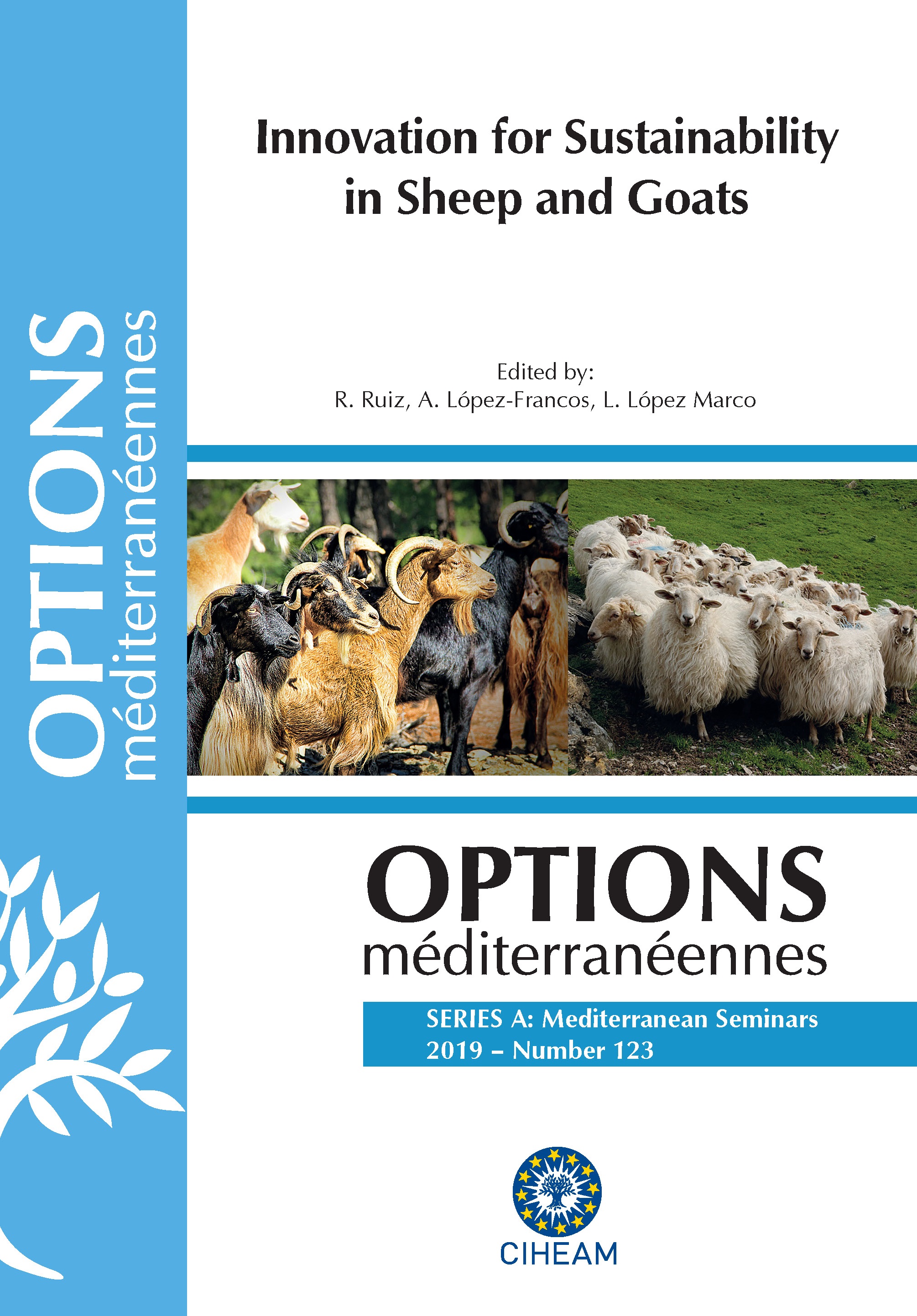| Article précédent | p. 469-477 |
The commitment of sheep and goat production systems in the agro – ecological transition: a collective participative approach in Corsica
The importance of environmental challenges in agriculture and livestock production requires an ecological transition of the production systems including the sheep and goat ones. In this context, establishing the conditions for agro–ecological changes and building innovative pathways of changes could favor this transition. After a presentation of some theoretical concepts behind the idea of ecological transition and agro – ecology, the objective of this communication is to report the implementation of a participative approach involving scientists, technicians, teachers and breeders in Corsica Island focusing on pastoral systems. This approach aims to design the performances of the systems from their triple social economic and environmental dimensions, how they are in line with the agro – ecological orientations and how to improve them. Inspired from previous methodologies but innovating through a participative approach, an easy-to-implement method has been adjusted to the characteristics of the local systems and agro-ecological criteria for sheep and goat herds and systems, we designed 10 groups of indicators including societal dimensions integrated in an Agroecological Livestock Proximity Index (ALPI). The exchanges during the sessions have shown that agro-ecology is not only an institutional injunction. It is also a collective methodological approach and pathway to design which innovations could support the sustainable development and changes in sheep and goat farming and specially, in pastoral systems. The utilization of this method and its further developments are evoked.
L’importance des défis environnementaux dans l’agriculture et en production animale nécessite une transition écologique des systèmes de production, y compris pour les systèmes ovins et caprins. Dans ce contexte, établir les conditions pour des changements agro-écologiques et la création de voies de changements innovantes pourraient favoriser cette transition. Après une présentation des principaux concepts théoriques derrière l’idée de la transition écologique et de l’agro écologie, l’objectif de cette communication est de mettre en place une approche participative impliquant des scientifiques, des techniciens, des enseignants en Corse en se concentrant sur les systèmes pastoraux. Cette approche vise à concevoir les performances des systèmes à partir de leurs trois dimensions sociales, économiques et environnementales, quelle est leur proximité aux orientations agro-écologiques et comment l’améliorer. Inspirée des méthodologies antérieures, mais en développant une approche participative, une méthode facile à mettre en oeuvre a été adaptée aux caractéristiques des systèmes locaux de Corse et des critères agro-écologiques pour les troupeaux et systèmes locaux ovins caprins systèmes ont été définis pour 10 groupes d’indicateurs intégrant la dimension sociétale et intégrés dans un Index de Proximité de l’Elevage (ALPI). Les échanges au cours des sessions ont montré que l’agro-écologie n’est pas seulement une injonction institutionnelle. C’est aussi une démarche méthodologique collective et un moyen de concevoir quelles innovations pourraient soutenir le développement durable et les changements dans l’élevage ovin caprin et en particulier dans les systèmes pastoraux. Les modes d’utilisation de cette méthode et ses développements ultérieurs sont évoqués.
- [ Afficher ]
- [ Télécharger ]
- [ Exporter la citation ]
Vous pouvez télécharger la citation au format :
- [ Imprimer ]
-
Mots-clés
CAPRIN, CONCEPTION, DEVELOPPEMENT DURABLE, ECOLOGIE, INNOVATION, OVIN, PASTORALISME, PRODUCTIONCiter cet article
Dubeuf J.-P., Casabianca F. The commitment of sheep and goat production systems in the agro – ecological transition: a collective participative approach in Corsica. In : Ruiz R. (ed.), López-Francos A. (ed.), López Marco L. (ed.). Innovation for sustainability in sheep and goats. Zaragoza : CIHEAM, 2019. p. 469-477. (Options Méditerranéennes : Série A. Séminaires Méditerranéens; n. 123). 2. Joint Seminar of the Subnetworks on Nutrition and on Production Systems of the FAO-CIHEAM Network for Research and Development in Sheep and Goats, 2017/10/03-05, Vitoria-Gasteiz (Spain). http://om.ciheam.org/om/pdf/a123/00007932.pdf



